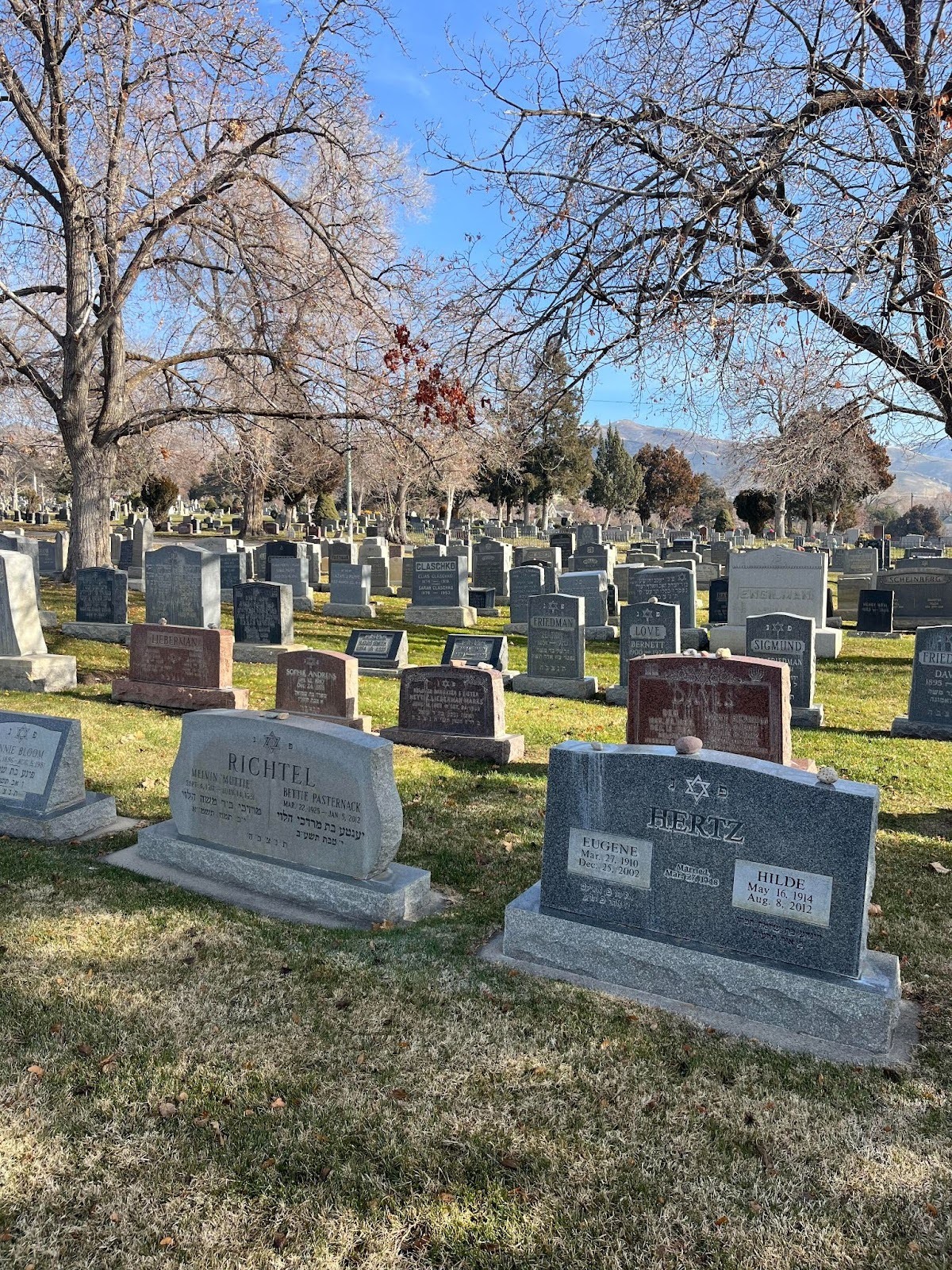The B’nai Israel Cemetery

Cemetery B’nai Israel is a burial ground dedicated to followers of the Reform branch of Judaism. Located in the sloping Avenues of Salt Lake City, this space is a beautiful resting place for some of Utah’s most famous Jewish residents.
The B’nai Israel Cemetery is one of Salt Lake City’s three Jewish cemeteries. The other cemeteries connected with the Kol Ami Cemetery Association are Montefiore (Conservative) and Shaare Tzedek (Orthodox). Located at 1021 East and 4th Avenue, it serves adherents of Reform Judaism. The tenets of Reform Judaism include an emphasis on the growing, changing nature of Judaism, a focus on its ethical implications rather than its ceremonial ones, a constant search for knowledge and truth, and a focus on human reason. It is a more liberal branch of Judaism, with less focus on ritual observance and more focus on the autonomy of the individual and progressive values.
The land for Salt Lake’s Jewish cemeteries was originally donated to the Jewish community by Brigham Young around 1866. These were the first Jewish cemeteries in the Intermountain West. The cemeteries are exclusively maintained by the Kol Ami Cemetery Association. This association is composed of members of Salt Lake’s synagogue, Congregation Kol Ami. Members of the board serve as volunteers. Although any Jewish person can be buried in one of the three cemeteries, each has slightly different requirements. Those wanting to be buried with non-Jewish spouses can only do so in the Reform cemetery. Orthodox and Conservative cemeteries require a ceremonial washing of the body before burial, but Reform cemeteries make that ritual optional.
Cemetery B’nai Israel is located on the south side of Salt Lake City Cemetery. Unlike the Montefiore and Shaare Tzedek cemeteries, B’nai Israel permits the burial of non-Jewish spouses and minor Children with the Jewish family member. The guiding principles of the Kol Ami Cemetery Association are Kavod Ha Meit: showing honor and respect for the dead; Nichum Aveilim: comforting those who are mourning a loss; and simplicity: all are equal in death.
Several prominent figures in Utah history were laid to rest in this peaceful graveyard, including Simon Bamberger, the first Jewish governor of Utah whose term ran from 1917 to 1921, and brothers Samuel and Frederick Auerbach, who established the People’s Store– a long-time Salt Lake City landmark.
The tranquil B’nai Israel Cemetery has served practitioners of Reform Judaism for well over one hundred years, and continues to do so today. Under the governance of the Kol Ami Cemetery Association, these burial grounds are maintained with a tangible sanctity and respect.
Images



